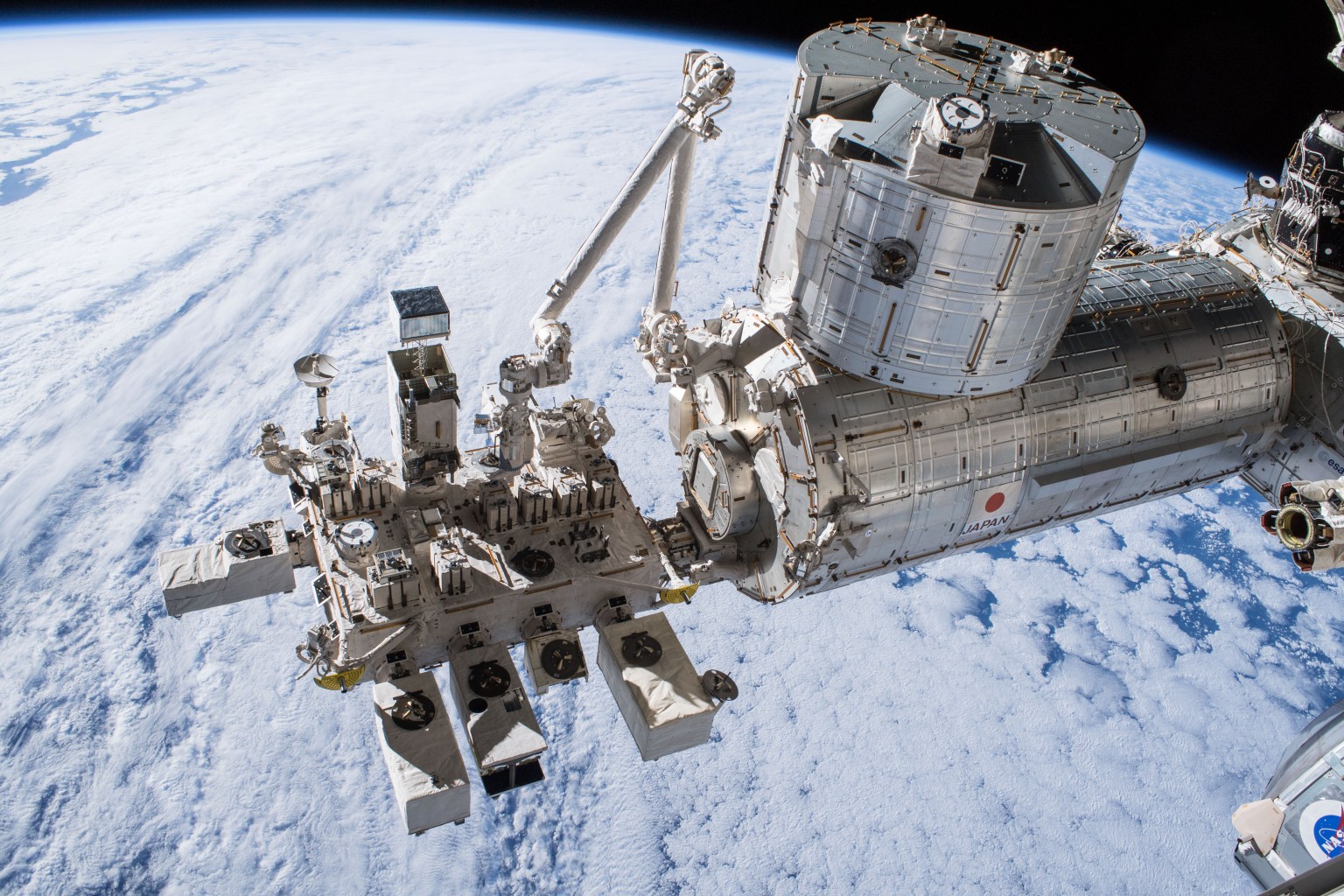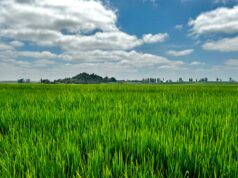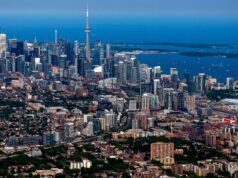
Science fiction author Jeff VanderMeer doesn’t just envision a better world. He hopes to live in a less stupid world.
VanderMeer is famously known for his novel, Borne—the universe in which his most recent novel, Dead Astronauts, is set—and his Southern Reach trilogy, the first book of which was adapted into the 2018 Alex Garland film Annihilation starring Natalie Portman, Oscar Isaac, Tessa Thompson, Jennifer Jason Leigh, Gina Rodriguez, and Tuva Novotny.
VanderMeer’s next book, A Peculiar Peril, is slated to come out this summer, while Netflix has already optioned his upcoming novel Hummingbird Salamander before he’s even finished writing it. He eventually even plans to add a fourth book, Absolution, to his Southern Reach series.
io9 had the chance to speak to him recently about his love of nature, his opinions on science fiction, and the next works we can expect to see making their way to the big and small screens. [Note: He’s a lover of nature and wildlife like I am, and we may have gotten a little carried away talking about the birds in his backyard.] Check out our interview below, which has been edited and condensed for clarity.
io9: What are you working on next?
Jeff VanderMeer: It’s called Hummingbird Salamander and it’s already been optioned by Netflix. I’m about halfway through writing it right now. It’s kind of an ecological thriller set, the way I put it, 10 seconds into the future. It’s about a woman bodybuilder and software manager who receives a taxidermy hummingbird from a dead woman she doesn’t know and what happens because of that. It turns out that hummingbird is extinct, that the taxidermy is contraband, and she goes down a wormhole of all kinds of stuff trying to figure out why she received it, involving ecoterrorism and wildlife trafficking.
io9: How would you say your background and love of nature has inspired your writing?
VanderMeer: It’s not really all that separable, but I think that my earliest memories are living in Fiji because my parents were in the Peace Corps. The natural world was very much a part of our daily lives. My mom was a biological illustrator doing biological diagrams of turtles and my dad studied invasive species, the rhinoceros beetle that attacked coconut trees. We made a lot of expeditions to very wild places while in Fiji, and the beach was right at my doorstep. I didn’t ever think of the world as being separated into nature and not nature. I still think that isn’t a way to think about it other than an artificial thing we’ve conned ourselves into believing.
I think first of all, with the Southern Reach trilogy, it’s very autobiographical. All of the details of the natural world are from hiking at the St. Marks Wildlife Refuge and other places in Florida, in the Southeast, and even the West Coast. Although strange things happen in them, the bulk of the books are composed of details from our real world. That’s just something that has always been there [in my past books] but just wasn’t as disguised in the Southern Reach trilogy because the prior books before that were set in imaginary worlds.
io9: How do you carry that sentiment into work not set in our world, like in Dead Astronauts?
VanderMeer: There I think it takes a different form, because there I’m also dealing with life forms that have been changed by human beings. I’m also working in more of a what you might call science fantasy mode; it has a giant flying bear and things like that. But it also includes a certain kind of extrapolation. I think that a realistic world view doesn’t get you anywhere. When you think about how they’re creating robots out of frog embryos right now it feels like you need something beyond the normal. Surrealism and fantasy permeating science fiction are what I turn to for thinking about these issues.
These books are always dealing with the kinds of things that we deal with. In Borne you have a climate refugee as a main character who’s trying to carve out an existence in a place with a scarcity of resources and maybe in a fantastical mode but the core details are extremely realistic compared to what a lot of people are going through right now which keeps it all grounded. But the characters are what the novels grow out of. I have a setting or idea or a character first.
io9: Given all of your stories about dystopias and the apocalypse, what kind of world would you want to live in?
VanderMeer: I would like to live in a less stupid world. The problem we have right now is that we seem so bound by the systems that have been in place for a long time. Even when we’re talking about green technology. You’ll see an example like solar panels put in but they chop down a forest to put them in…or you put in wind turbines and don’t realize you’ll kill off birds. You think about driverless cars without thinking about, so what, you’re still going to extract this stuff from the Earth to create the cars, add to the wildlife that cars kills every day.
What I’d like to see is a smarter discourse that takes into account the complexity of the world and the understanding that without a complex biosphere we’re all fucked as well. Twenty-three percent of carbon emissions come from destroying habitats…and then we put in a shit ton of concrete, whatever else we’re doing that’s an example of it exacerbating it. We’re rapidly hurtling to the point so that if we’re doing this even if we solve climate change we’ll have real problems anyway.
We want to return to a falsely agrarian non [fossil fuel]-burning world but we’ve been incredibly stupid about how we think about our resources, and letting tech bros tell us they know what the future is like. [Elon] Musk is a lesser problem than say, [Donald] Trump, but he’s still not really part of the solution. I think obsessions like moving to Mars and not using resources towards actually preserving the world we have is reckless and more about his own ego. I think the way he treats his workers is symptomatic of the problem as well, and I just think we have too many people who are not willing to do the hard work of restoring habitats, protecting the environment, and trying to do the things that we need to do beyond driverless electric cars.
io9: I’m a big birder and have noticed all of your bird posts on twitter. When did you start birding?
VanderMeer: I think that I was actually a more ardent birder when I was eight. I started keeping a bird diary in Fiji. It wasn’t scientific, some of them would be things like “red bird” and some of them more specific…but I became bored of just keeping lists and started writing short stories about the birds. I’ve been a birder for a long time and now it’s an excuse to go hiking and things like that. I don’t like sitting still and waiting for the birds to come to me. But yeah, they’re one of the most visible manifestations in the natural world for us and something a lot of us see on a daily basis. Especially in [my] new house in the ravine—it’s such an amazing environment. I try really hard to get rid of invasives and put in native plants, and upgrade the bird feeders. We’ve seen 90 species of bird over the years.
io9: I notice how much you think about the animals that appear in your work—why is that?
VanderMeer: I think that’s just naturally occurred because of the settings that were invoked. I think more about what a character would see. So in Annihilation, there’s much more specificity than in Authority because the guy in Authority wouldn’t know what the species were because he’s not interested in that…It’s always about what the character is going to observe or not observe.
io9: And have you thought about how to incorporate the animals in a universe that isn’t here on Earth, like in Dead Astronauts?
VanderMeer: I have. In Dead Astronauts, there’s a character called a dark bird that’s basically a duck with a broken wing. but it doesn’t really have a broken wing, it’s a way of luring in its prey. I think about the habits of certain animals and invert it. A bird pretending to be wounded is trying to lead a predator away from its chicks, not trying to lead its prey to it…I still take a trait that’s real and apply it differently. Especially in these places where I think about biotech being manipulated by humans beings.
io9: I’ve noticed that you think about animal biology with a level of detail that other science fiction authors think about space or Earth science—can you get into that?
VanderMeer: I think that for me specifically, I don’t see a lot of people dealing with animals in interesting ways in their fiction. I see that a lot of writers are more willing to research physics than they are current animal behavior science when they’re writing something. You end up with depictions of animals 30-40 years out of date with regards to animal intelligence in a novel that’s up to date how it handles other things. Maybe it’s the ignorance of the characters, but sometimes it’s simply the fact that the writer hasn’t interrogated the underlying ideas of the natural world that are often so received as propaganda that allows us to disregard the individual so we can kill more animals without thinking about what we put them through.
Those are the things I think about, in part because this idea of animals as ambassadors of the biosphere is a powerful one for fiction. You still have to have characters in your fiction even when you’re dealing with these issues. Animals are a focal point that resonates with the reader in a way just talking about landscape may not. It’s important to revise how we see the world in our day-to-day lives. That’s what gets us to a point where we’re less exploited and maybe get pass by the skin of our teeth the climate crisis. It’s not about gadgets and technology, it’s about a point of view and a mindset that we can’t seem to get out of.
io9: Can we expect any more movies based on your work soon?
VanderMeer: Borne and Dead Astronauts have been optioned by AMC Studios and we’re looking for a showrunner…I’m not really interested in being part of a writers’ room necessarily, but on the AMC thing being a creative consultant—and on Hummingbird Salamander’s—is [the] right level for me. I think. I can bring some value and be of some use to the showrunner, and maybe write a script one day…
io9: What do you think about producers removing some of the environmental themes from your work in their adaptations?
VanderMeer: I’ve talked about this before but I think the main thing which was the irony that Annihiliation the movie having stripped out the environmental themes, the attention let me sell more books and talk about them and donate more to the environmental charities. I wish the movie had more environmental themes but it allowed me to take that passion to another level…on the one hand by being creative consultant I can make sure the movie and TV shows maintain a lot of things that are important to me while not getting in the way of how the showrunners vision might deviate. Annihilation was unique, there’s usually a little more fidelity. I don’t see it as a problem. The upcoming scripts I can’t talk about definitely have fidelity in that way.
VanderMeer released his most recent book, Dead Astronauts, this past December; his upcoming YA novel, A Peculiar Peril, is slated for release in July.
For more, make sure you’re following us on our Instagram @io9dotcom.
Source: gizmodo.com








